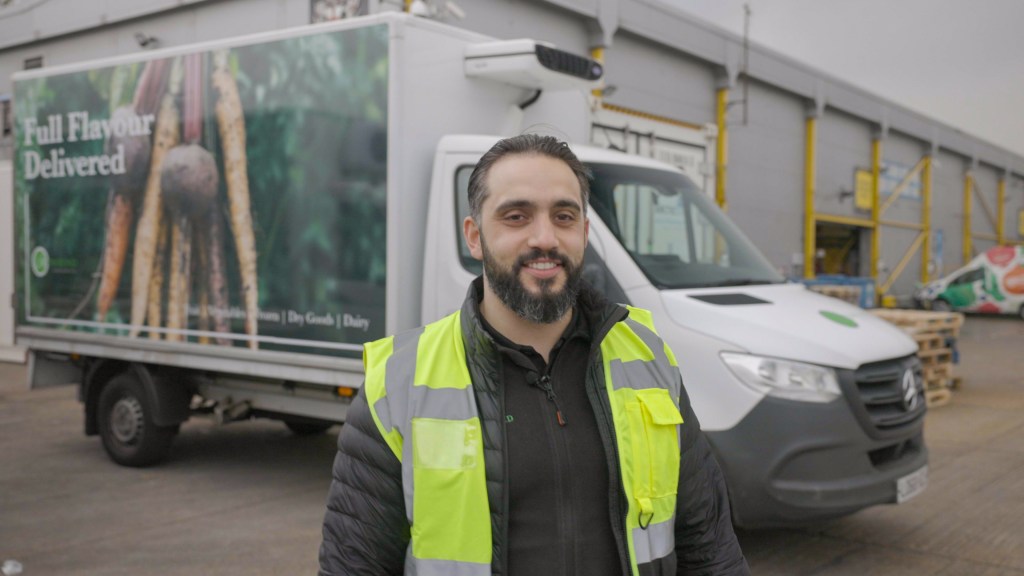Insights on Essential Business Practices from Kerim Suavi
Kerim Suavi, 33, is the managing director of Crowbond Foodservice, a catering greengrocer located in New Spitalfields Market in Leyton, east London. He began his journey in the family business, established by his father, Mehmet, at the age of 17. At that time, the company operated four vans delivering fresh produce to local restaurants. Today, Crowbond Foodservice boasts a fleet of 26 vehicles, catering to a diverse clientele that includes hotels, restaurants, sandwich bars, and street food vendors. With 65 employees, the company is approaching a turnover of £25 million and is set for a significant transition as Kerim prepares to take full ownership next week after purchasing his father’s stake.
The history of Crowbond dates back to when Kerim’s father, at just 16 years old, purchased his first grocery store on Hackney Road, east London, which was oddly named Crowbond Groceries. This initial venture led to increasing demand for delivery services, prompting him to transition away from the store to focus on deliveries. Following his father’s guidance for five years, Kerim took over the daily operations of the business around the age of 23. Since then, it’s been his passion project.
Key Principles Driving Our Success
Our success can be attributed to our proactive approach to technology, which allows us to improve efficiency and maintain a clear understanding of our operations. Conversely, we emphasize a strong focus on fundamental business practices. Unlike many new entrepreneurs who prioritize flashy marketing, we dedicate ourselves to the core elements that truly matter: product quality, service excellence, and fair pricing.
Product Quality Matters
We ensure that we stay closely connected to the market and the products we provide. Our team operates nightly to guarantee that our offerings are as fresh as possible. With daily purchases and swift turnover, we avoid overstocking and resist the urge to chase lower prices at the expense of quality. As the saying goes, “Customers will remember a bad product far longer than a high price,” which is crucial in our industry.
Market prices can fluctuate, but delivering low-quality products creates lasting negative impressions.
Commitment to Service
Assessing service quality is subjective and can differ from person to person. My definition of good service centers around the commitment to meet customer needs, regardless of the business cost. If this means dispatching a product via Uber or personally handling a delivery on a Sunday morning, we do what it takes to ensure customer satisfaction.
Arriving on time with the correct product is just the baseline of good service. Going beyond expectations can lead to a lasting positive impact on the customer experience. Issues can transform into opportunities to win customer loyalty, especially when resolved effectively.
Understanding Market Pricing
Every product carries its own value, and while service is not a tangible item, it certainly has worth. It’s essential to assess pricing in relation to product value and the cost of delivering that service while also ensuring the business is profitable. Striking a balance between fair pricing for customers and sustainable profit is key to longevity in business.
As a trading business operating in a day-to-day market, there’s the temptation to exploit price fluctuations. However, our goal is to stabilize prices to benefit our customers. We don’t chase the competition; instead, we focus on our sensible pricing strategy that ensures profitability while serving our clientele fairly.
Leadership and Team Culture
Leading by example fosters a culture where employees align with our service philosophy. The more like-minded individuals we attract, the stronger our foundation becomes. Our team members are ingrained with this culture, leaving little room for deviation. Those who don’t share our commitment will find it challenging to thrive in our environment.
A hard-learned lesson is to be uncompromising in dealing with underperforming staff. The current labor market can tempt businesses to accept mediocre performance, but this undermines the foundation we strive to build.
Balancing Responsibility and Personal Life
The culture propelling our business forward brings a sense of responsibility to lead effectively. I often find myself working nights to support various shifts and reassure employees of our shared commitment.
Future Aspirations
I admire those who pursue personal hobbies like golf, but my focus on business growth remains paramount. With my wife expecting our first child, it would be easy to slow down, but I envision a much larger future for the business. As we develop our management structure and explore marketing, branding, and technology, I feel we’re just scratching the surface of our potential.
No Time for Paternity Leave
While many would consider taking paternity leave, my commitment to the business means I will likely continue working, even during such a pivotal moment. The entrepreneurial lifestyle demands all-in engagement, leaving no room for half-measures.
Kerim Suavi shared his insights on business principles during a conversation with Richard Tyler.




Post Comment